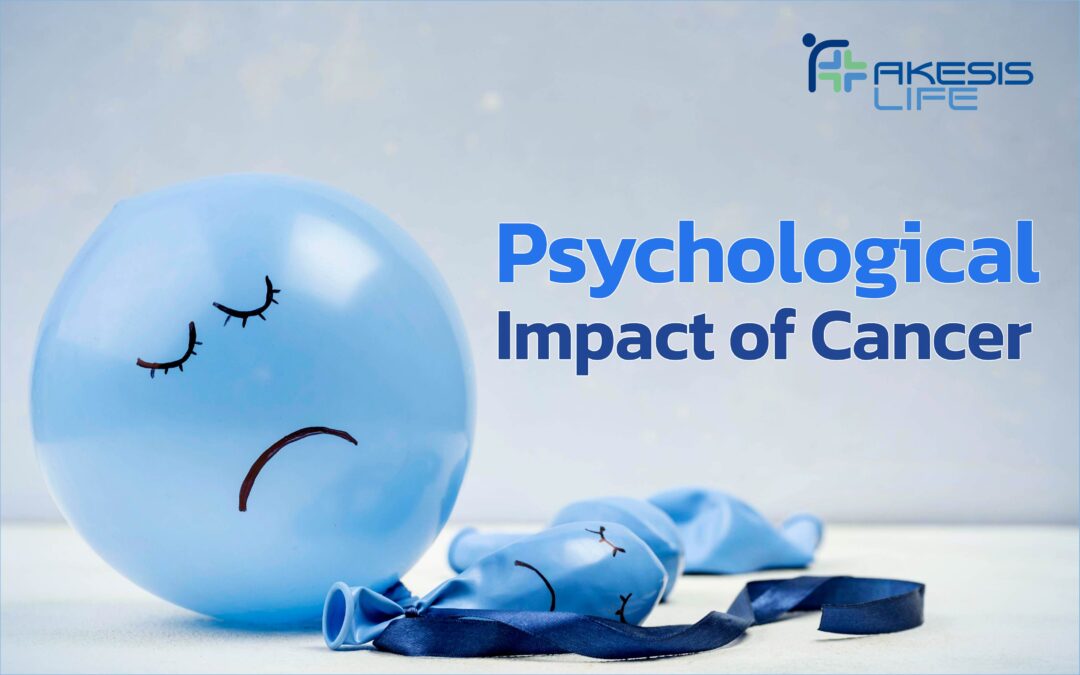Cancer is not solely a physical illness; it also significantly affects the mental health of patients. Studies indicate that up to 50% of cancer patients experience psychiatric disorders that warrant proper attention and care. Upon being diagnosed with cancer, patients often respond emotionally with fear of death, anxiety about prognosis and anticipated pain, concern for loved ones, stress over treatment decisions, worries about medical expenses, feelings of sadness and hopelessness, and sometimes even anger at their situation—prompting questions like, “Why me?”
Understanding the mental health impact of cancer is crucial for delivering comprehensive care that addresses both the physical and emotional needs of cancer patients. Psychologically, cancer patients often go through stages of emotional responses as follows:

Stages of Emotional Response in Cancer Patients
- Shock: The initial reaction to a cancer diagnosis is often disbelief and emotional numbness. Patients may feel confused and have difficulty processing information.
- Denial: Some patients refuse to accept the diagnosis as a defense mechanism to shield themselves from emotional pain.
- Anger: Once the reality starts to settle in, feelings of irritability and frustration may emerge.
- Bargaining: Patients may attempt to negotiate with themselves or higher powers, making promises to change behavior in hopes of altering their fate.
- Depression: At this stage, deep sorrow often sets in, reflecting the severity of the situation or disappointment with the treatment outcomes.
- Acceptance: Eventually, many patients reach a state of acceptance, enabling them to confront the diagnosis with constructive coping strategies.
Approaches to Supporting Mental Health in Cancer Patients
A cancer diagnosis often brings immense psychological stress. Prioritizing the mental health needs of cancer patients is essential not only for their overall well-being but also for improving treatment outcomes. This article outlines evidence-based approaches to managing the mental health of cancer patients.

- Psychotherapy
Cognitive Behavioral Therapy (CBT) is a highly effective approach for managing depression, anxiety, and other psychological challenges in cancer patients. CBT helps patients focus on specific problems and treatment goals, teaches essential skills for managing stress and anxiety—key components in coping with cancer—and promotes positive thinking, which can positively affect mood and behavior. This cognitive shift is linked to reduced stress and anxiety.
- Medications
Antidepressants and anti-anxiety medications can be essential for patients experiencing severe depression or anxiety. Commonly used drugs include Selective Serotonin Reuptake Inhibitors (SSRIs) and benzodiazepines, which have proven effective in alleviating these symptoms.

- Transcranial Magnetic Stimulation (TMS)
TMS is a medical treatment that uses electromagnetic pulses to stimulate specific brain regions. It shows promise in reducing depression and anxiety in cancer patients. Some studies suggest that TMS can help alleviate depressive symptoms by enhancing the release of mood-related chemicals like serotonin, through stimulation of areas linked to emotion and sensory processing.

- Integrative Medicine Approaches
- Mindfulness and Meditation: Practicing mindfulness and meditation can significantly reduce stress, anxiety, and depression in cancer patients. It also enhances self-awareness, confidence, and the ability to adapt to new circumstances.
- Breathing Techniques: Structured breathing exercises help lower stress levels and induce calmness. Deep, intentional breathing can promote relaxation and improve mental clarity.
- Yoga and Physical Activity: Regular exercise, including yoga, is associated with reduced anxiety and depression, improved mood, and better quality of life for cancer patients.
- Spiritual and Religious Practices: Spiritual beliefs often provide motivation and hope. Participation in religious or spiritual activities can offer emotional stability and inner peace.
- Social Support: Family and friends are critical sources of support, providing emotional comfort, practical help, and reducing feelings of loneliness. Joining cancer support groups also enables patients to share experiences and draw strength from others who understand their journey.
- American Cancer Society. (2022). Emotional and Social Effects of Cancer. Retrieved from https://www.cancer.org/treatment/treatments-and-side-effects/emotional-side-effects.html
- Mitchell AJ, Chan M, Bhatti H, Halton M, Grassi L, Johansen C, Meader N. Prevalence of depression, anxiety, and adjustment disorder in oncological, haematological, and palliative-care settings: a meta-analysis of 94 interview-based studies. Lancet Oncol. 2011;12(2):160-174.
- Linden W, Vodermaier A, Mackenzie R, Greig D. Anxiety and depression after cancer diagnosis: prevalence rates by cancer type, gender, and age. J Affect Disord. 2012;141(2-3):343-351.
- Osborn RL, Demoncada AC, Feuerstein M. Psychosocial interventions for depression, anxiety, and quality of life in cancer survivors: meta-analyses. Int J Psychiatry Med. 2006;36(1):13-34.


